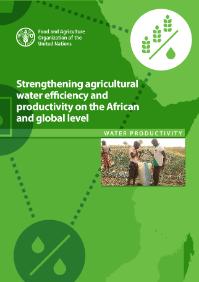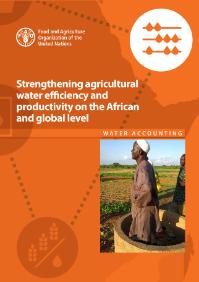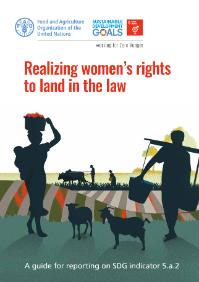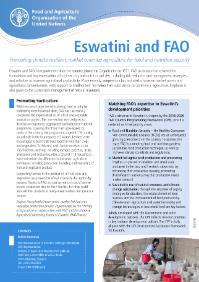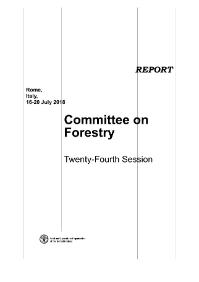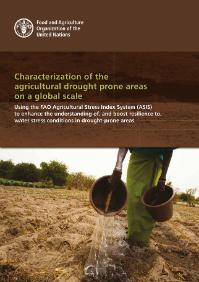This brief constitutes part of the GCP/INT/231/SWI project “Strengthening Agricultural Water Efficiency and Productivity on the African and Global Level”, funded by the Swiss Agency for Development and Corporation (SDC). It is the fifth technical brief to illustrate (i) the project rationale; (…
This brief constitutes part of the GCP/INT/231/SWI project “Strengthening Agricultural Water Efficiency and Productivity on the African and Global Level”, funded by the Swiss Agency for Development and Corporation (SDC). It is the second technical brief to illustrate (i) the project rationale; (…
Goal 5 of the Sustainable Development Goals (SDGs) “Achieve gender equality and empower all women and girls” recognizes the fundamental role of women in achieving poverty reduction, food security and nutrition. Target 5.a aims to “Undertake reforms to give women equal rights to economic…
The Voluntary Guidelines on the Responsible Governance of Tenure of Land, Fisheries and Forests in the Context of National Food Security explicitly mention pastoralists as users of the Guidelines and as targets of capacity building. Despite the historical and often ongoing marginalization of…
Eswatini (formerly Swaziland) and FAO have partnered since the country joined the Organization in 1971. FAO assistance has covered theformulation and implementation of food security and nutrition policies, including risk reduction and management strategies,and activities to increase agricultural…
The focus of Strategic Objective 2 stems from FAO’s vision for sustainable agriculture, which is at the heart of the 2030 Agenda. This evaluation assessed FAO’s efforts in promoting integrated approaches for making agriculture, forestry and fisheries more productive and sustainable. These…
The focus of Strategic Objective 2 stems from FAO’s vision for sustainable agriculture, which is at the heart of the 2030 Agenda. This evaluation assessed FAO’s efforts in promoting integrated approaches for making agriculture, forestry and fisheries more productive and sustainable. These…
Pastoral livestock production is crucial to the livelihoods and the economy of Africa’s semiarid regions. It developed 7,000 years ago in response to long-tern climate change. It spread throughout Northern Africa as an adaptation to the rapidly changing and increasingly unpredictable arid…
The NENA region already exposed to chronic shortage of water will face in the coming decades a severe intensification of water scarcity due to several drivers, including demographic growth and its related food demands, urbanization, energy demand and overall socio-economic development.…
Report of the 24th Session of the Committee on Forestry
Drought is one of the main causes of food insecurity. In 2011, the horn of Africa has faced the worst drought in 60 years. An estimated 12.4 million people suffered from a massive food shortage. To mitigate the impact of agricultural drought, it is of high importance to dispose of timely and…
Following the success of the Fifth Mediterranean Forest Week (MFW) in Morocco in March 2017, the Sixth MFW will take place in Lebanon on 1-5 April 2019. The Sixth MFW will bring together a diverse range of participants to consider how Mediterranean forests can assist countries in the region to…

